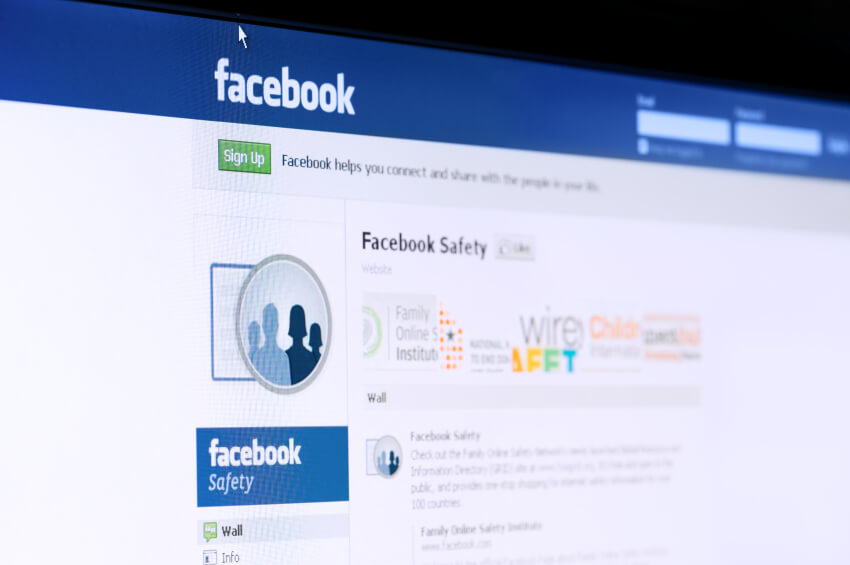TMI: Parents and Social Media

- By Anne Collier
- Misc
- May 21, 2013

A lot of unusually thoughtful points about parenting in our collective, global social media environment are made in this recent New York Times article: “Cyberparenting and the Risk of T.M.I.” Pamela Paul writes that, for this generation of teens, it’s not Big Brother so much as Big Mother and/or Big Father. “Yes, we know contemporary parents are hyper-involved in their children’s lives,” she reports (though I’m not sure that’s common knowledge yet), “but the term ‘helicopter parent,’ with its menacing tones of parental omniscience, has nothing on the intimate reach of the cyberparent. A helicopter hovers above, at a safe distance, with lots of insulating air between. Cyber-parents, on the other hand, are squished right up next to their offspring.”
Cyberbullying: Reflections of the Real World

- By Anne Collier
- Misc
- May 14, 2013

I keep seeing research evidence that “what goes around, comes around” online too. We think of it as common sense in the face-to-face world, but it’s becoming pretty evident online too. There’s safety in respect for self and others wherever it’s shown, including in digital spaces. Here are three examples in the research, starting with a recently released study:
Positive Begets Positive Online Too
The latest is a study released by Michigan State University researchers who found that “positive online comments can help blunt cyberbullying.” The question that led the press release was: “Want to stop cyberbullying on Facebook? Try using … Facebook.” But certainly not just in Facebook; that’s just where the research was done. If you want positive behaviors from others, be positive. We kind of knew that, right? I’m not being sarcastic in any way, just noting what we’re seeing more and more in the research: that online reflects offline, and there’s an ethic of reciprocity that works in all spaces. The social norms and common sense we humans have been developing for thousands of years apply in this new “space” into which human relations spill over and play out too. “We’ve established with our research that anti-cyberbullying messages that are framed in a negative way are not getting kids’ attention,” said one of the MSU researchers, Asst. Prof. Anna McAlister. This is good advice for the online safety field too.
Law Enforcement & Social Media Now Working Together

- By Sean Bryant
- Misc
- April 23, 2013

Consumer Privacy Education
This is a significant sign of progress: The National Association of Attorneys General (NAAG) is working with Facebook on consumer privacy education. We’re still only in the first half of this decade, and in the second half of the last one, the state attorneys general were threatening legal action against a social media service – MySpace, the most popular one of that time. Now NAAG is actually co-branding a consumer-ed campaign with this decade’s biggest social media service. Today NAAG and Facebook launched “Safety and Privacy on Facebook.” On the page, parents will find privacy tips, videos from Facebook’s “Ask the Safety Team,” and a public service announcement from FB CEO Sheryl Sandberg and Maryland Attorney General Douglas Gansler, president of NAAG. [For more, see our Parents' Guide to Facebook.]
Anne Collier: Meta Mobile Trend Behind the Teen

- By Sean Bryant
- Misc
- March 26, 2013
 Inversoft would like to introduce the expertise and blog piece of Anne Collier. Editor of NetFamilyNews.org and founder and executive director of its parent organization, Net Family News, Inc., Anne is a writer and journalist who has worked in the news media since 1980. With SafeKids.com's Larry Magid, she co-directs ConnectSafely.org, a Web-based interactive forum and information site for teens, parents, educators, and everybody interested in the impact of the social Web on youth and vice versa.
Inversoft would like to introduce the expertise and blog piece of Anne Collier. Editor of NetFamilyNews.org and founder and executive director of its parent organization, Net Family News, Inc., Anne is a writer and journalist who has worked in the news media since 1980. With SafeKids.com's Larry Magid, she co-directs ConnectSafely.org, a Web-based interactive forum and information site for teens, parents, educators, and everybody interested in the impact of the social Web on youth and vice versa.
Enjoy!
The Meta-Trend Behind the Teen (& everybody) Mobile Trend
As the news stories about teens’ mainly mobile (digital) socializing multiply, parents seem to be turning a corner too. Monitoring kids on Facebook is “so 2009,” ABC News reports. Even the very tech-savvy “Online Mom” blogger Monica Vila wrote recently that “everything went mobile and I lost control” – though calmly (and I think wisely) adding that this taught her “to focus more on being a mentor rather than a gatekeeper.”
I’ll get back to the parenting part in a second, but first a bit about the multiplying stories. Facebook itself confirmed the teen trend, writing in its Feb. 1 annual report to the SEC that “we believe that some of our users have reduced their engagement with Facebook in favor of increased engagement with other products and services such as Instagram.” Good that Facebook owns Instagram, Business Insider suggests (the reasons the article offers for teens’ embrace of mobile while not leaving Web sites in any wholesale way make a lot of sense), but a CNET report cites the comment by Facebook CFO David Eberman in an investors meeting that Instagram is a “formidable competitor” of its parent.
Social Networks: A Parent’s Responsibility

- By Sean Bryant
- Misc
- March 18, 2013
“When we were growing up, our parents were able to monitor our social activity by observing our interactions: reading a letter, listening to a phone call, or watching a social interaction at a house or gathering. Fast forward to present day. Now we are parents, and monitoring our children's social interactions is a whole lot more complicated than listening to the conversation they are having on the phone in the next room.”
Social networks like Facebook, Instagram, Twitter and Tumblr, to name a few, can introduce an overwhelming learning curve for anyone new to the scene. So why should you, the parent, take the time to understand how these platforms work? Why should you understand how your child uses these social networks?

What You Don’t Know, CAN Hurt You
When your child is online, they are talking, sharing and engaging with friends, family and strangers. Not knowing how your child uses social networks, what information they are sharing online, and who they are talking to can be a dangerous mix. The danger lies in the transfer of information, how easily that information can be obtained and how easily it can be hidden.
Have you ever seen the parent that walks around with blinders on, listening to the angry stories their friends and other parents share about their child's deception, but not thinking critically about his/her own child?